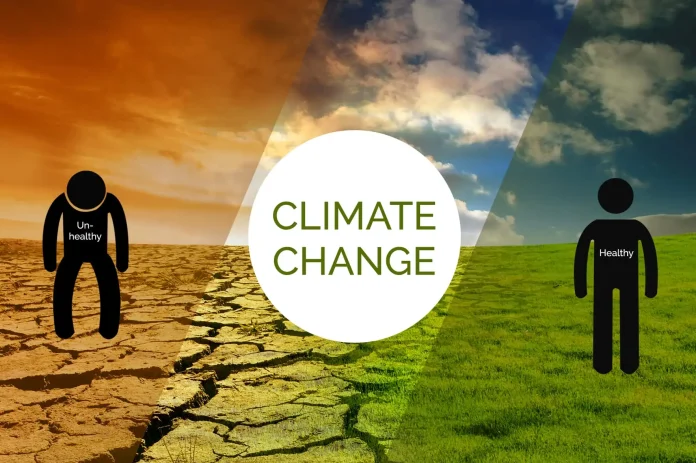West African climate negotiators have convened in Dakar this week to develop unified regional positions ahead of the landmark COP30 climate summit in Brazil, with discussions focusing on securing adequate financing for fossil fuel transitions and operationalizing the Loss and Damage Fund.
The three-day preparatory workshop, running from September 23-25, 2025, brings together representatives from Economic Community of West African States (ECOWAS) and West African Economic and Monetary Union (UEMOA) member countries to coordinate their negotiating strategies for the November summit in Belém.
The Senegalese Ministry of Environment and Ecological Transition is hosting the regional consultation, with Director of Cabinet Gueye representing the minister at the opening ceremony alongside Amadou Tchambou, UEMOA’s Resident Representative in Senegal, and Yao Bernard Koffi, ECOWAS Acting Director of Environment and Natural Resources.
The workshop aims to ensure West African countries take ownership of developments from the 62nd session of subsidiary bodies (SB62) and formulate unified regional advocacy priorities for COP30 negotiations. This coordination becomes critical as climate financing remains woefully inadequate for the region’s needs.
Central to the discussions are five key challenges that COP30 must address: finding financing solutions to abandon fossil fuels, adopting operational arrangements for the Loss and Damage Fund, defining global adaptation objectives, establishing new collective climate financing targets, and implementing the Glasgow-Sharm El Sheikh adaptation work program.
The Loss and Damage Fund, established at COP28 to help vulnerable countries deal with climate impacts beyond their capacity to adapt, has attracted just under $789 million in pledges so far – a figure UN officials acknowledge falls far short of actual needs.
West African negotiators are using this preparatory meeting to identify implementation gaps from previous COP decisions and develop concrete proposals for presentation to the broader African Group of Climate Negotiators. The region faces particular vulnerability to climate impacts despite contributing minimally to global greenhouse gas emissions.
The workshop includes discussions about acquiring a dedicated West African pavilion at COP30 to showcase regional projects that have successfully reduced or avoided greenhouse gas emissions. This platform would highlight adaptation initiatives coordinated by ECOWAS directorates and specialized agencies alongside other sub-regional institutions.
Climate vulnerability data underscores the urgency of West Africa’s coordinated approach. The region expects temperature increases of 2.3 degrees Celsius by 2060, representing warming of 0.6 degrees per decade, while already experiencing increasingly extreme weather conditions and unpredictable precipitation patterns.
Participants include United Nations Framework Convention on Climate Change (UNFCCC) focal points, experts responsible for Nationally Determined Contributions (NDCs) from ECOWAS member states, and representatives from key regional institutions including CILSS/AGRHYMET, the West African Science Service Centre on Climate Change and Adapted Land Use (WASCAL), and the UNFCCC Regional Collaboration Centre.
International organizations are also participating, with the International Organization for Migration (IOM), UNICEF, and various thematic coordinators contributing expertise on climate-migration nexuses and adaptation strategies particularly relevant to West African contexts.
The timing proves crucial as COP30 represents a pivotal moment for global climate negotiations. Brazil’s presidency of the summit raises expectations for ambitious outcomes, particularly given the country’s positioning as a leader in multilateralism amid global geopolitical tensions.
For West Africa, the stakes couldn’t be higher. The region faces escalating climate impacts while lacking adequate financial resources for necessary adaptation and mitigation measures. Coordinated regional advocacy becomes essential for securing meaningful commitments from major emitters and climate finance providers.
The workshop reflects broader recognition that successful climate negotiations require careful preparation and regional coordination. African countries have historically achieved more favorable outcomes when presenting unified positions rather than negotiating individually.
ECOWAS has been strengthening its climate action framework, recognizing that collective action offers the best pathway for addressing climate challenges in the region. The organization’s climate strategy emphasizes both mitigation and adaptation while advocating for increased international support.
The Dakar meeting also addresses human mobility issues increasingly linked to climate change in West Africa. Climate-induced displacement and migration have become growing concerns requiring policy integration across multiple sectors and national boundaries.
As the world approaches COP30, West African countries are positioning themselves to demand adequate climate finance and meaningful support for adaptation measures. Their unified approach reflects understanding that individual country negotiations often prove insufficient against better-resourced delegations from major emitting countries.
The outcomes of this preparatory workshop will feed directly into the African Group of Climate Negotiators’ positions, potentially influencing continental and global climate negotiations. Success in Brazil depends partly on how effectively West African countries can present their needs and secure commitments from international partners.
Looking toward November’s summit in Belém, West African negotiators carry the dual challenge of advocating for their region’s specific needs while contributing to broader global climate action. Their preparation in Dakar demonstrates the strategic thinking necessary for meaningful participation in complex international negotiations.
The workshop represents more than technical preparation – it embodies West Africa’s determination to ensure its voice is heard in global climate discussions that will shape the region’s future for decades to come.
Source: newsghana.com.gh










